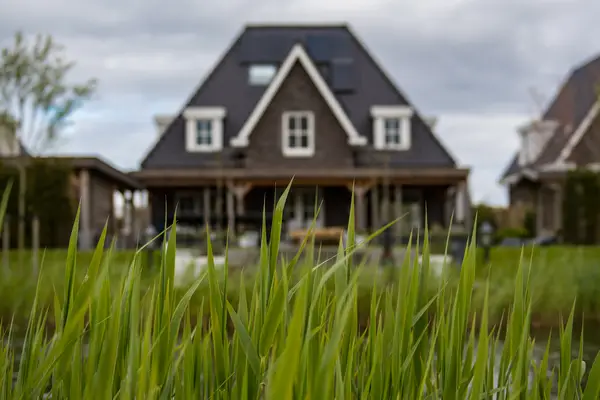
If you are lucky enough to have a house valuation that is more than the purchase price of a property you are buying, the first thing you should do is to jump up and down with joy, as this doesn’t happen too often.
But what happens if house valuation is more than purchase price? In the unlikely event that the house valuation is more than purchase price, count yourself lucky as most valuers will give the purchase price as its value even if the value is higher. This is unless the accepted offer is very much a below market value offer.
Please also read this article to discover how you could save £71,475 on your next mortgage if you sell your house and rent before buying again. Even I was amazed when I did the calculations!
Will a mortgage valuation ever be higher than the purchase price or offer?
It is possible to have a mortgage valuation higher than the purchase price, but the purchase price needs to be significantly less the market value for the to happen. Which in investment terms is a true below market value deal.
But in general what happens is the surveyor will check the value of the property, and unless they consider this to be less than the price being paid, they will mark the value as the price being paid.
It is therefore no coincidence when your house valuation comes back with the same value as what you are paying for the property.
What should you do if the mortgage valuation is higher than purchase price?
If the value is higher than the purchase price, firstly you should be glad you’re getting the property at below market value. But this valuation is private to you as you will have paid for it. Therefore you don’t need to inform the sellers about the higher value and I also suggest you don’t either.
It might be the vendors are aware they are selling at below market value. This may be because they need to sell their house quickly. But whether this is the case or not, you don’t want to rub their noses in the fact. But also, they may change their mind if they see the true value.
On an extra positive note, the mortgage lender should have no problems with lending against a property when the value is higher than the purchase price. Lenders only have a problem if the valuation comes in lower than the amount being paid.
How does lending work based upon property valuation?
Mortgage lenders provide loans as a percentage of ‘loan to value’ or (LTV). Which means the amount of the loan as a percentage of the property’s value.
Example 1: If a property is valued at £200,000 by the mortgage company. The proposed mortgage is £150,000. The loan to value is 75% (i.e. £150,000/£200,000).
But what about if the property’s valuation comes back as worth more than what is being paid. From a bank’s perspective this reduces their risk and the loan to value percentage.
Example 2: If in the above scenario the property valuation came in as £250,000 instead. Also, assuming the mortgage is still set as £150,000. The revised loan to value is now 60% instead of 75% (i.e. £150,000/£250,000). The higher valuation in this case provides the bank with additional security above its loan in terms of equity. Which in this case the equity is £100,000 instead of £50,000. For a bank equity is their buffer against falls in property prices should they need to repossess the property.
But on the other hand what if house valuation is less than your offer price?
Example 3: Using the above scenario, but this time the valuation comes back as £185,000 instead. The mortgage company is unlikely to offer the full loan of £150,000. This is because the loan to value will be 81% (i.e. £150,000/£185,000). This will be outside the terms of this lending. For the loan to go ahead this will need to be reduced to £138,850 (i.e. £185,000 x 75%).
The borrower has three options if faced with example 3 above:
- Renegotiate the price with the seller to pay £185,000 instead. If the loan is reduce to £138,750, this will keep to the same loan to value percentage.
- Request different mortgage product from the same lender, which includes a higher loan to value percentage of 81%. But this means paying £200,000 which is £15,000 more than the valuation.
- Find another lender who is happy to lend at 81% loan to value. Also means paying £200,000 which is £15,000 more than the valuation.
- Accept the lower mortgage valuation and put in a higher deposit. Also means paying £200,000 which is £15,000 more than the valuation.
For me the only viable option is option one above. It doesn’t make sense to pay more for a property than it’s worth. This is unless there’s an upside to buying at this price.
For example, there’s development potential which means there’s the opportunity to make more in an uplift of profit on the property than the £15,000 amount paid in excess of its value.
What are the benefits of a house valuation more than purchase price?
The main benefit of a house valuation more than purchase price is the comfort to know you are paying less that what a property is worth. The other possibility is you may be able to get a different mortgage product with a lower interest rate.
Mortgage interest rates are based on risk and are linked to loan to value percentages. In simple terms the higher the loan to value percentage, the higher the risk to the bank and therefore the higher the interest rate is going to be. Versus the lower the loan to value percentage, the lower the risk and therefore the lower the interest rate will be.
When house valuation is more than purchase price is used in property investment
For property investors who use bridging finance, buying at below market value is often part of the business. There are some bridging products that offer a lending percentage that’s based on the open market value instead of only against what’s being paid for the property.
Bridging companies will operate using two percentages. One percentage against the higher open market value. The second is against purchase price. So long as the deal is such that both percentages are met, the lending will work.
Example 4: Property valuation comes in as £485,000. Buying price is £360,000 and loan required is £340,000. This means that the property valuation is more than purchase price by £125,000. The £340,000 as a loan to value against the market valuation is 70%.
Whereas against the price being paid is 94.44%. Deals like this are not easy to find. But when you find them this type of loan arrangement works well if you are an investor. This example relates to a real property deal, just in case you’re thinking this type of below market value deal is not possible.
Please don’t forget to read this before you leave…
Please don’t forget to also read this article to discover how you could save £71,475 on your next mortgage if you sell your house and rent before buying again. As I said earlier, even I was amazed when I did the calculations!
I hope you’ve got something from reading this article about what happens if house valuation is more than purchase price
If you’ve got something from this article on “what happens if house valuation is more than purchase price” please share it on your favourite social media site.
Also, if you have any questions, please feel free to comment below too. Alternatively, if you need more help, please feel free to contact us on our contact us page here. Or join the discussion and ask your question in the property forum.




